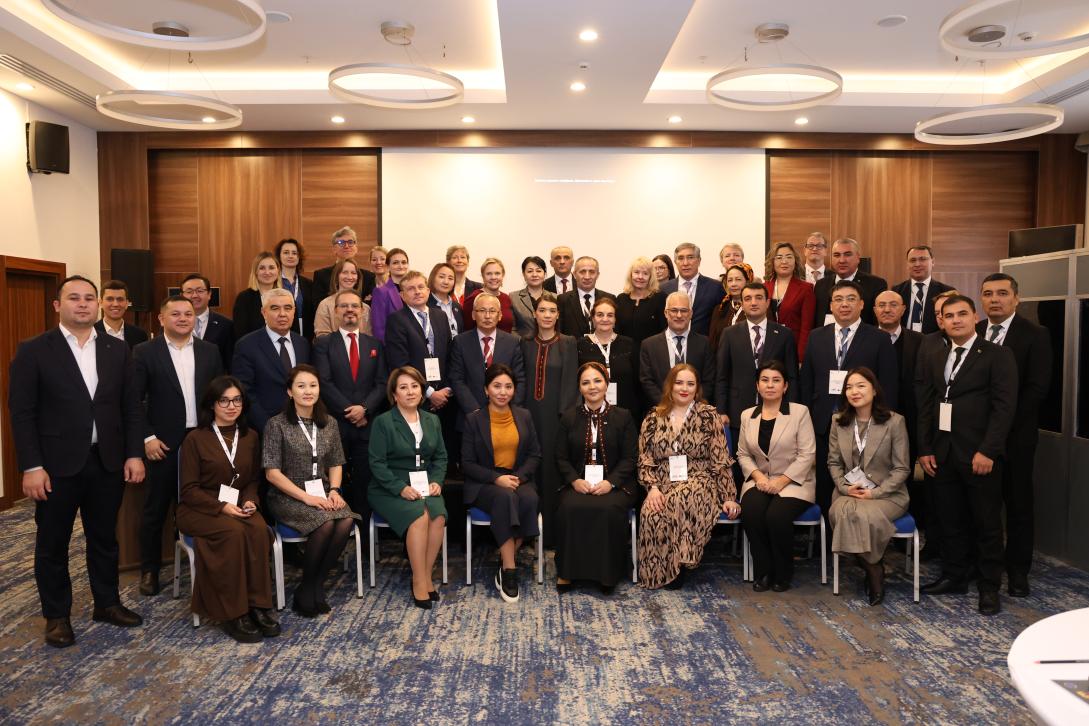EUSR CA - Opening speech for the DARYA High-Level group meeting

Check against delivery
Excellencies, Deputy Ministers, dear colleagues,
It is a privilege to address you today in Tashkent at the second High-Level Group meeting of the Dialogue and Action for Resourceful Youth in Central Asia [DARYA] project.
I am pleased to see us united in a common goal - to enhance inclusive and labour market-relevant skills development for our young people.
This is a crucial undertaking for the Central Asian region, especially considering the significant number of young people who are entering the job market every day.
Launched two years ago, DARYA is the first regional project in Central Asia dedicated exclusively to address the unique challenges of the education sector in close relation to labour market needs.
And as I am a strong believer of the power of a regional approach, I am glad that Central Asian countries increasingly work towards a harmonisation of education systems.
In a long term, it will open many new opportunities to the youth of Central Asia countries and will be another catalyst for the economic growth of the region.
We have our collective commitment to improve education, training, and employment systems in Central Asia.
And as we start our discussions over the next two days, let me underline that the success of DARYA hinges also on our ability to further develop strong regional cooperation.
The establishment of this High-Level Group gives us an opportunity to enhance dialogue and collaboration. It also creates the much-needed links of practitioners with government representatives.
The participation of EU Member State representatives and International Financial Institutions also promotes sharing the best practices and finding tailored solutions.
The focus of this meeting is sustainability. And I would like you to think this concept broadly.
To think of sustainability not only in its environmental sense, but as a holistic approach that integrates education and labour markets with a view to the future.
It means ensuring that these two systems work together seamlessly to provide equal opportunities for all young people in Central Asia – opportunities that prepare them for the future and possible new developments then.
We are required to adapt our educational frameworks to meet the demands of a rapidly changing world characterized by digitalization, globalization, and changing geopolitics.
Moreover, in this ever-changing world we all need to become more agile, adaptable.
Education, which equips young people with necessary skills for their future is more important than ever.
Skills that also allow them to be flexible and adapt; to work in new areas, to develop new ideas and ways.
We face challenges, from rising unemployment rates among youth and disparities in educational quality to the skills needed in labour market.
However, we also have opportunities in front of us.
By choosing to give priority to inclusive and sustainable education and training systems, we can empower our youth with the skills they need to succeed in an increasingly competitive environment.
And at the same time, we get closer to realising the potential of our societies – as making education more inclusive helps students to come up with new ideas and creativity.
In addition, I believe DARYA has fostered something permanent and much needed - an open and regular communication between sectors of education and labour market.
DARYA focuses on three strategic areas. First is skills needs analysis, second is flexible qualifications, and lastly an inclusive teaching and learning.
These pillars are designed to ensure that educational systems are responsive to the needs of both students and employers.
DARYA is not just about funding and capacity building. It represents a long-term commitment by the European Union to engage with the Central Asian countries to strengthen their education systems.
And I also invite our partners to take full advantage of other instruments, such as Erasmus+ and Horizon Europe to give impetus to the development of education systems.
Looking back at last year, we have come a long way.
From launching DARYA as functioning project to organising the module approach, creating peer learning experiences and consulting the youth.
Unfortunately, I could not join the last meeting in Turin. But you shared valuable insights into how we can better align educational outcomes with labour market needs.
And the Roadmap developed during discussions in Bishkek has laid the groundwork for steps towards sustainable skills development.
Here in Tashkent, I invite you to build on this momentum and take a step further.
Your expertise and also political will are crucial to cooperate across ministries, to be proactive, to also find sustainable solutions for administrative challenges.
In closing, I want to express my gratitude to the European Training Foundation for your dedication and bringing us together.
I wish you successful two days!
Thank you!
